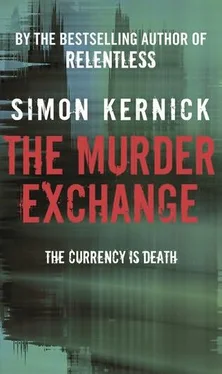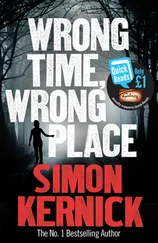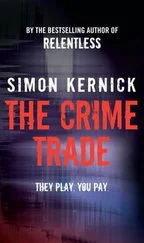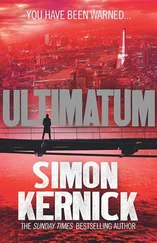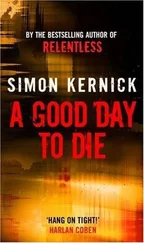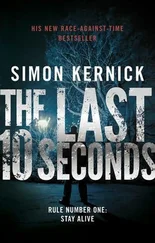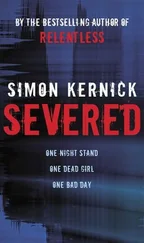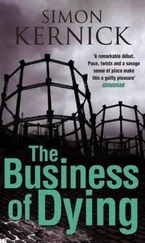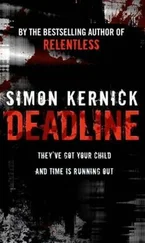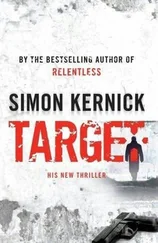Simon Kernick - The Murder Exchange
Здесь есть возможность читать онлайн «Simon Kernick - The Murder Exchange» весь текст электронной книги совершенно бесплатно (целиком полную версию без сокращений). В некоторых случаях можно слушать аудио, скачать через торрент в формате fb2 и присутствует краткое содержание. Жанр: Триллер, на английском языке. Описание произведения, (предисловие) а так же отзывы посетителей доступны на портале библиотеки ЛибКат.
- Название:The Murder Exchange
- Автор:
- Жанр:
- Год:неизвестен
- ISBN:нет данных
- Рейтинг книги:4 / 5. Голосов: 1
-
Избранное:Добавить в избранное
- Отзывы:
-
Ваша оценка:
- 80
- 1
- 2
- 3
- 4
- 5
The Murder Exchange: краткое содержание, описание и аннотация
Предлагаем к чтению аннотацию, описание, краткое содержание или предисловие (зависит от того, что написал сам автор книги «The Murder Exchange»). Если вы не нашли необходимую информацию о книге — напишите в комментариях, мы постараемся отыскать её.
The Murder Exchange — читать онлайн бесплатно полную книгу (весь текст) целиком
Ниже представлен текст книги, разбитый по страницам. Система сохранения места последней прочитанной страницы, позволяет с удобством читать онлайн бесплатно книгу «The Murder Exchange», без необходимости каждый раз заново искать на чём Вы остановились. Поставьте закладку, и сможете в любой момент перейти на страницу, на которой закончили чтение.
Интервал:
Закладка:
It was a shameful episode, the whole thing, and for a long time I found it difficult to come to terms with. You see, in my eyes, I hadn’t done a lot wrong. I’d made a mistake but I thought the punishment far outweighed the crime. I took it out on my wife, made life difficult for her, and maybe things between us hadn’t been quite as strong as I’d thought, because three months later, after one argument too many, we separated. It turned out she’d been having an affair. I suppose this would have been understandable were it not for the fact that the other man happened to be the intrepid journalist who’d broken the story in the first place. The cheeky bastard had gone round to interview her about what effect the story was having on her and the family, and clearly it was having quite a big one because somehow, not long afterwards, maybe even that day, they’d ended up in the sack.
What do you do in that sort of situation? What can you do? Nothing except pick yourself up, dust yourself down, and remember that what goes around comes around. There is justice in this world, it’s just that sometimes it takes a long time before it bothers to show itself. I had no choice but to cling to that fact as I gathered up my possessions, put in for a transfer, and headed north of the river for the first time in my career, ending up at probably the most controversial station in the entire Met, a place still haunted by the betrayal of one of its most senior detectives.
DS Dennis Milne was without doubt Britain’s most corrupt police officer: a valued and long-standing member of CID by day, a hired killer with God knows how many corpses to his credit by night. His shadow still hung over the station like a noxious cloud, even though it had been close to two years since his grim secret had been uncovered and he’d disappeared into thin air. It didn’t matter. Time would be a slow healer here, and there were a number in CID, including DCI Knox, who’d be forever tainted by their long association with the station’s most infamous son. Mud sticks, and maybe that was why I’d settled in so easily there.
Since my arrival, I’d rented myself a half-decent flat in Tufnell Park, and had managed to pull myself back up to the rank of detective sergeant. A far cry from the old days, and I was still waiting for justice (my ex and the journalist were now shacked up together and my daughter even claimed that she quite liked him), but things could always have been worse. I still had a job and, against all the odds, I still got something out of it.
I left the restaurant at five past ten and headed round the corner to the Roving Wolf, a pub used by the station’s CID, to see if there was anyone in there. It was busy, but I spotted a couple of DCs I knew vaguely standing near the bar and joined them for a couple of pints. They were both interested in how the Matthews case was going but I couldn’t tell them a lot. Slowly was the word that about best described it. Conversation drifted on to other things and I left them at eleven, wandering down onto Upper Street in search of that elusive late-night creature, the black cab.
Upper Street was buzzing as usual, its constant stream of pavement cafes and trendy bistros bustling with custom as people of all ages, and pretty much every race under the sun, took advantage of the balmy evening. Strains of jazz, mamba, flamenco and half a dozen other musical styles drifted out of the open doors and windows of a dozen different establishments, giving the place a pleasant, continental feel. It almost felt like being on holiday and, for one who’d travelled up Upper Street a few times back in the 1980s, the transformation was incredible. Once a barren, dark place of nasty drinking hovels and little else where only the adventurous and the foolish came after dark, it had now become Islington’s version of Paris’s Left Bank. If you weren’t careful, you might even forget to watch your back.
Incredibly, I managed to hail a cab near Islington Green after only five minutes, which had to be some sort of record for that time of night. I thought about heading home but for some reason I wasn’t that tired. Instead, I asked the driver to take me to the Arcadia nightclub. He gave me a funny look in the mirror but did as he was told and we made our way in silence up to the Highbury Corner roundabout, and then left onto the less continental and more menacing Holloway Road. I was hoping to catch Roy Fowler in residence and collar him for a few minutes since I felt confident that if he didn’t have anything to hide, he’d return there sooner rather than later. If you’re in the nightclub business, you don’t trust other people to look after your investment for too long, not if you want anything left at the end of it.
Four hundred yards up the Holloway Road, just past the Liverpool Road turning, the traffic slowed right down as a large group of maybe twenty-five or thirty people standing outside a pub suddenly spilled out into the road. Seconds later there were shouts and the sound of glass smashing, and a group of five of them split off from the rest in what looked like a wild dance. Others ran over to pile in and the whole scrum of them lumbered into the middle of the road, breaking apart and reforming as half a dozen individual battles were fought, oblivious to the cars driving by. A bottle sailed lazily through the air, bouncing off the roof of the vehicle in front of us before ending up unbroken in the bus lane on the other side of the street.
‘Fucking kids,’ said the taxi driver in a voice that was half-snarl, half-sigh, as the group, most of whom looked no more than twenty, swirled back towards the pavement. One of them went down, putting up his arms in a vain effort to protect himself as he disappeared beneath a rapid-fire welter of kicks from at least three others. A girl screamed something unintelligible and rushed out of the watching crowd to intervene, wading into the kickers, handbag aloft. The one on the ground, sensing an opportunity, jumped to his feet and got out of the firing line. He was holding his head and bleeding from the nose.
The taxi driver accelerated and we left them behind to their fighting. ‘Fucking kids,’ he said again. ‘They get worse and worse.’ I nodded and mumbled something in reply, thinking that that was the thing with London. One minute you were drinking in the ambient atmosphere of a laid-back summer evening, the next you’d stepped unwittingly into an ugly battlezone. I suppose that’s why some people like it so much. The variety.
There was a long queue of revellers, mainly under-twenty-fives, snaking back along the street from the entrance to the Arcadia. I got the cab to stop directly outside, paid the driver in full, and tipped him a quid. ‘Enjoy yourself,’ he said, with a wave, as he drove off. Probably about ten years too late for that, I thought, but you never knew.
I walked to the head of the queue where a group of four male and one female door staff were frisking the waiting punters. One of them turned to me as I approached and gave me the same sort of funny look the cab driver had, like what on earth was a bloke in his mid-thirties in a suit he looked like he’d been wearing all day doing coming to a trendy joint such as this. ‘Yeah?’ he said, by way of greeting.
I produced my warrant card and thrust it in his face. ‘Police. I’m here to see Mr Fowler.’ I was getting deja vu now.
He inspected the card, then looked back at me. ‘I don’t think he’s here tonight,’ he said.
‘Well, Miss Toms’ll do,’ I said, and walked past him.
There was a line of four further doormen in the foyer just inside the main entrance and I walked past them, showed my warrant card to a very thin young lady with big hair at the desk, and asked her to phone up to Fowler. She reiterated what the doorman had said about him not being in, but I insisted. She let the phone in his office ring for about thirty seconds before telling me he wasn’t there. Next she tried Elaine Toms, who apparently was in, but wasn’t answering either. I had no great desire to enter the club proper but it didn’t look like I was going to have any choice. I thanked her and headed through the door in front of me.
Читать дальшеИнтервал:
Закладка:
Похожие книги на «The Murder Exchange»
Представляем Вашему вниманию похожие книги на «The Murder Exchange» списком для выбора. Мы отобрали схожую по названию и смыслу литературу в надежде предоставить читателям больше вариантов отыскать новые, интересные, ещё непрочитанные произведения.
Обсуждение, отзывы о книге «The Murder Exchange» и просто собственные мнения читателей. Оставьте ваши комментарии, напишите, что Вы думаете о произведении, его смысле или главных героях. Укажите что конкретно понравилось, а что нет, и почему Вы так считаете.
